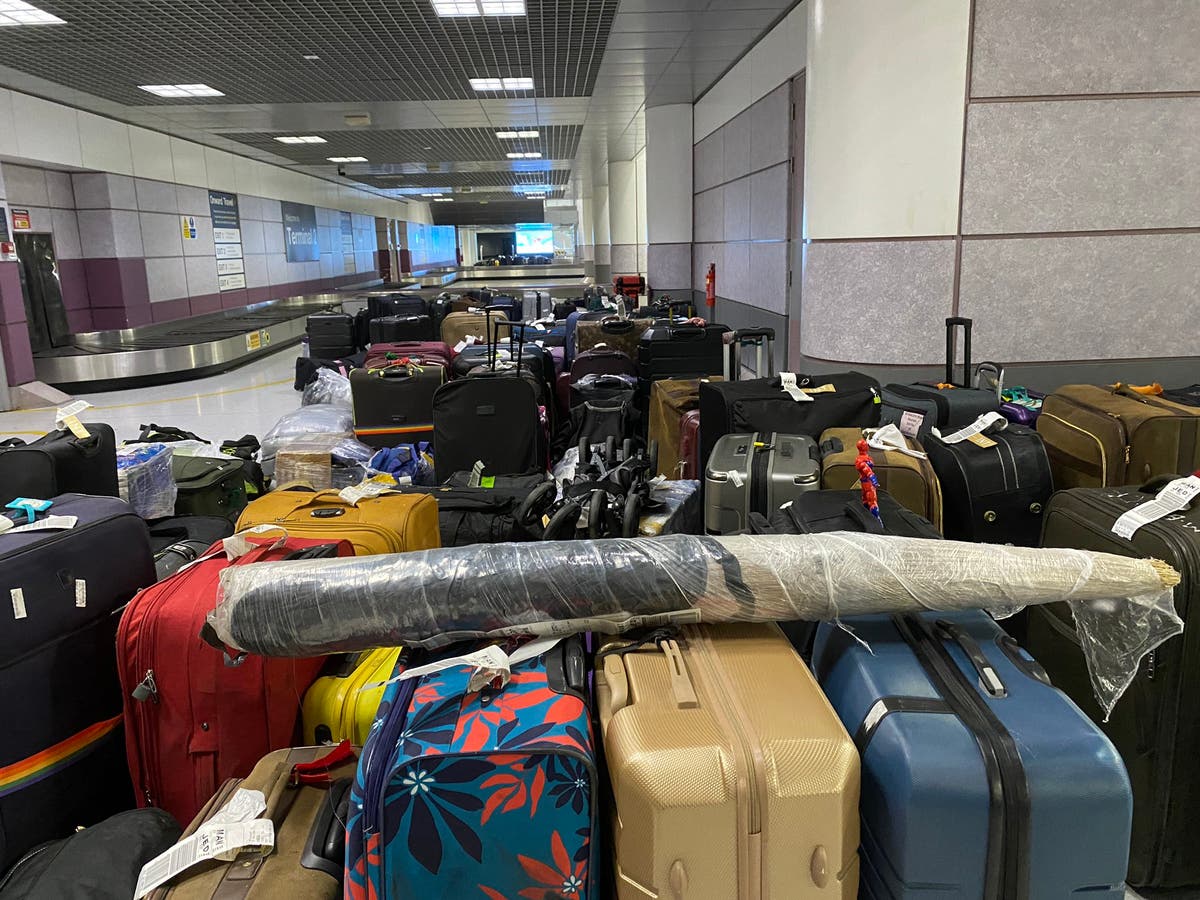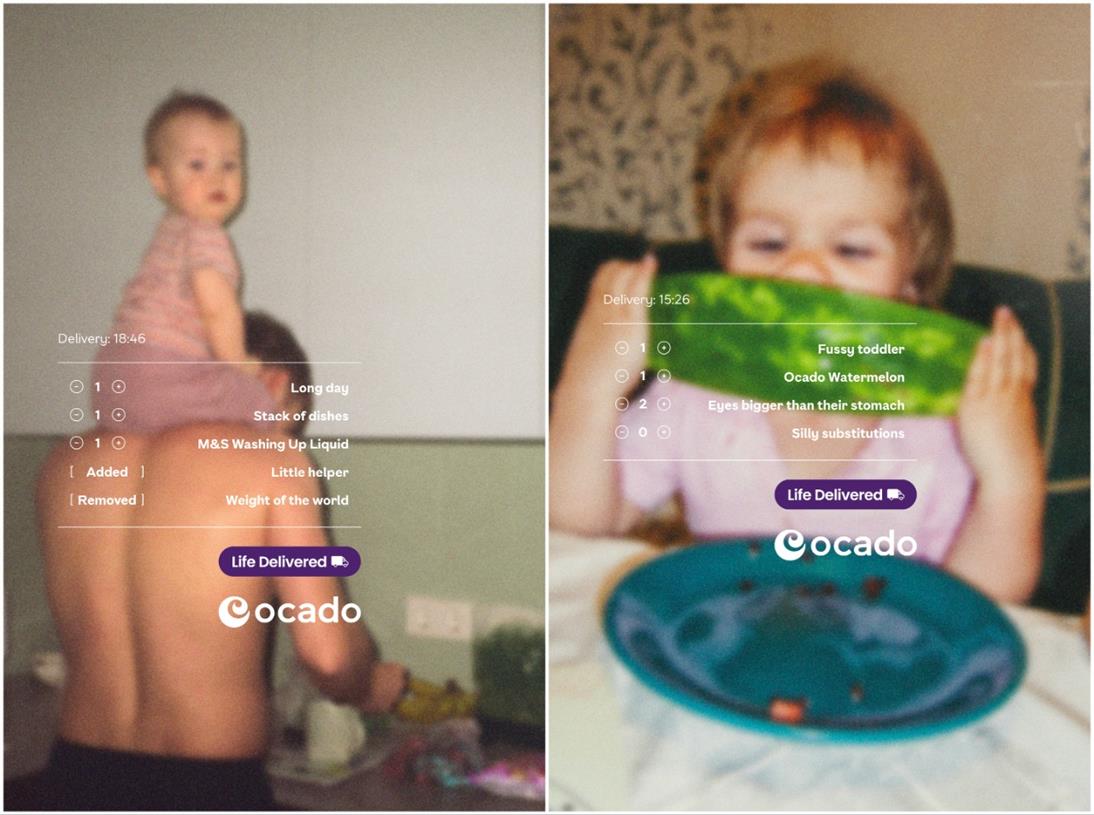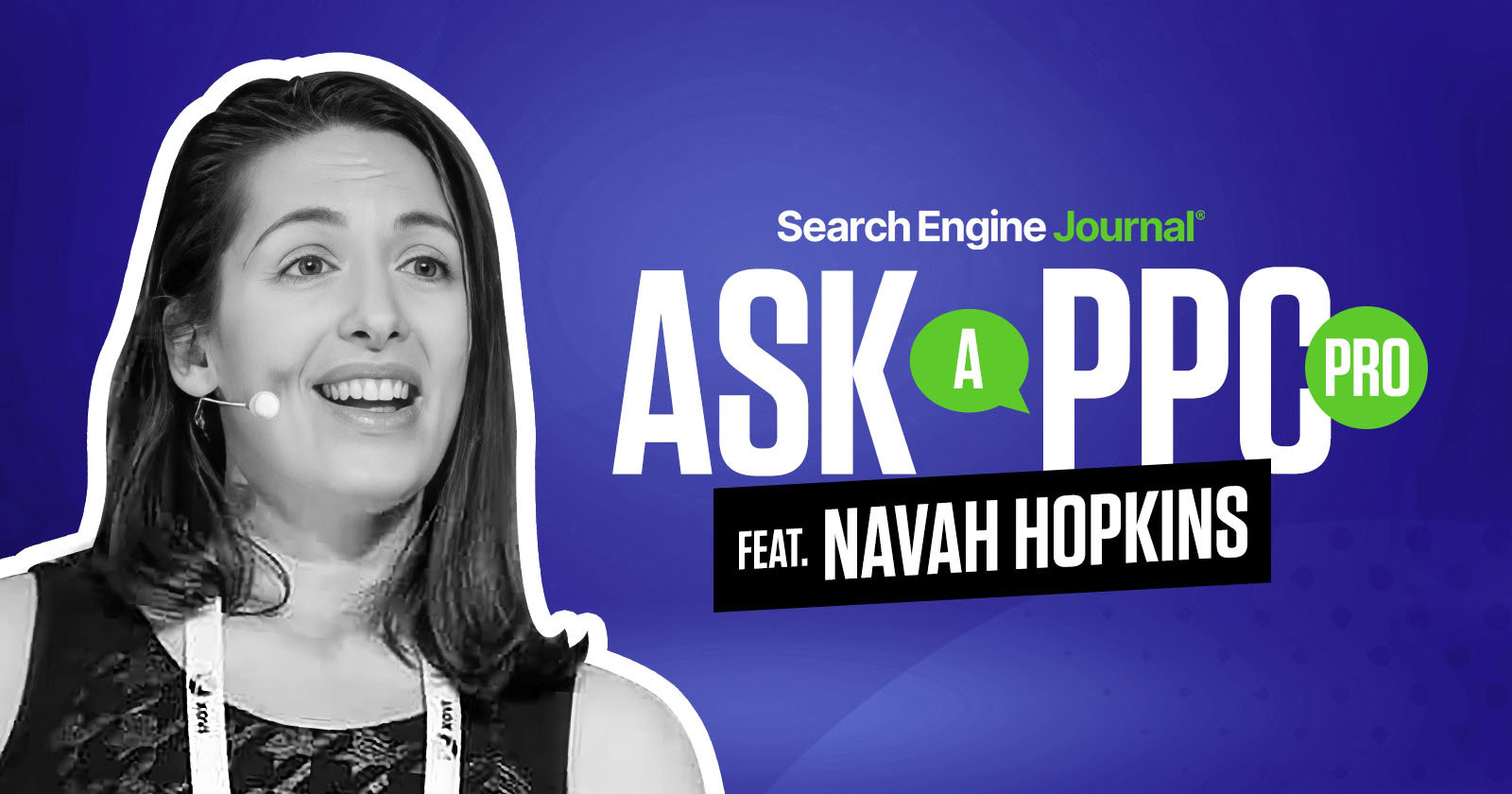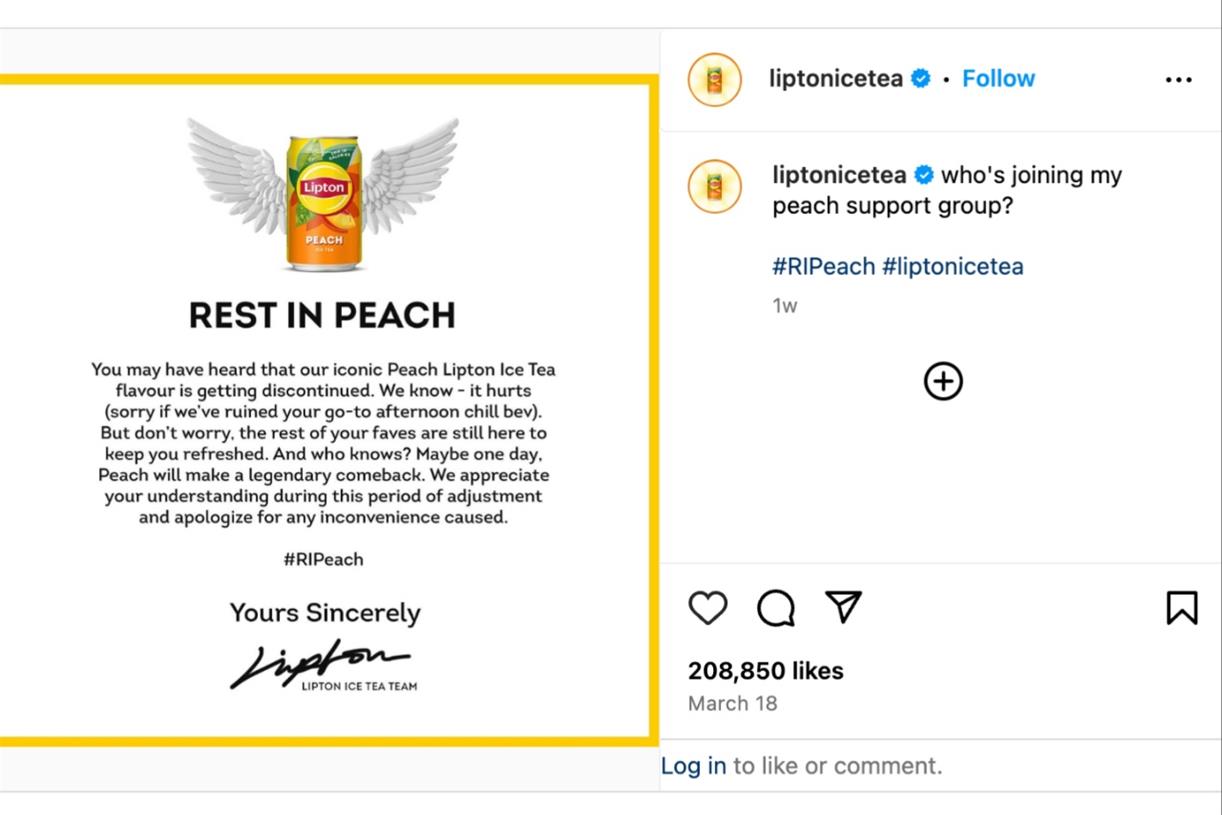Are These Common Habits Interfering With Your Sleep? An Expert on Getting Your Best Snooze Ever
"Treat yourself like you'd treat a child." The post Are These Common Habits Interfering With Your Sleep? An Expert on Getting Your Best Snooze Ever appeared first on Camille Styles.

It’s no secret that we’re obsessed with all things sleep. From understanding the ins and outs of meditating before bed to curating a calming space—you could call us experts on the topic. But with the intention of getting one percent better every day, we’ll humble ourselves and admit that there’s always more to learn. And particularly when it comes to adopting healthy habits, we always want to be moving in the direction of supportive, wellness-promoting routines. That’s why we couldn’t be more surprised when we learned a few sneaky culprits that could be keeping us from getting the best sleep of our lives.
Of course, some are obvious—caffeine and alcohol consumption chief among them. But to understand whether sleep apps are doing us more harm than good and if morning people really have it all figured out, we turned to an expert.
Featured image by Teal Thomsen.
1 of 9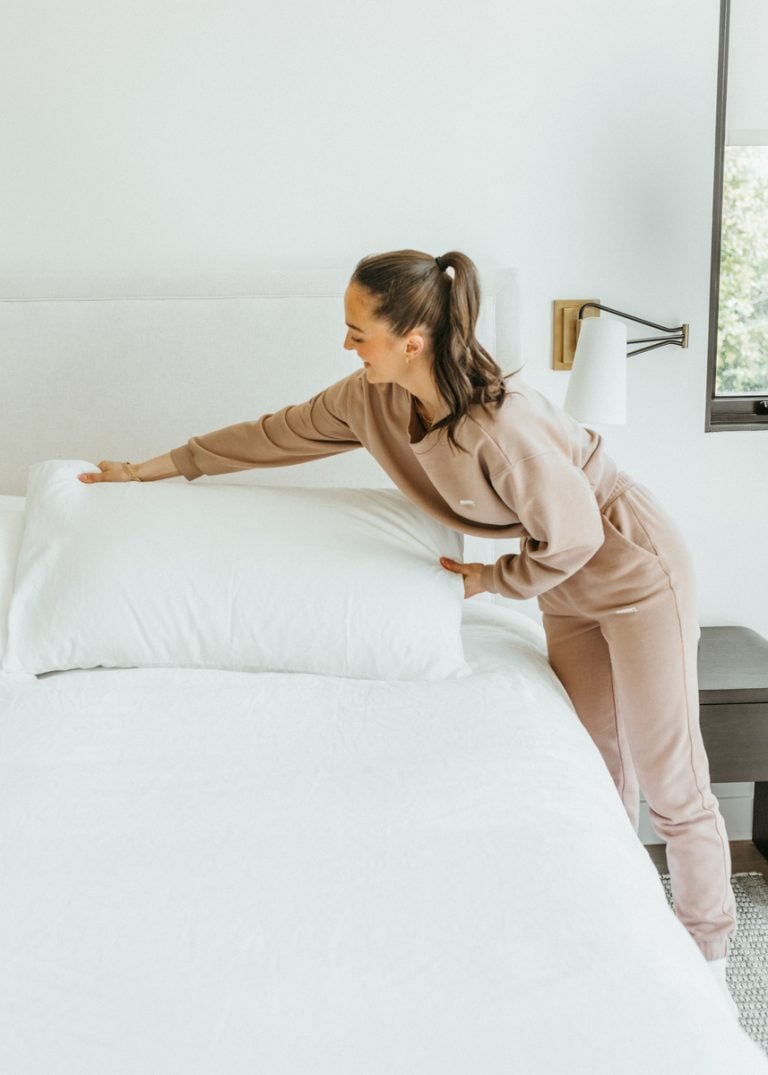
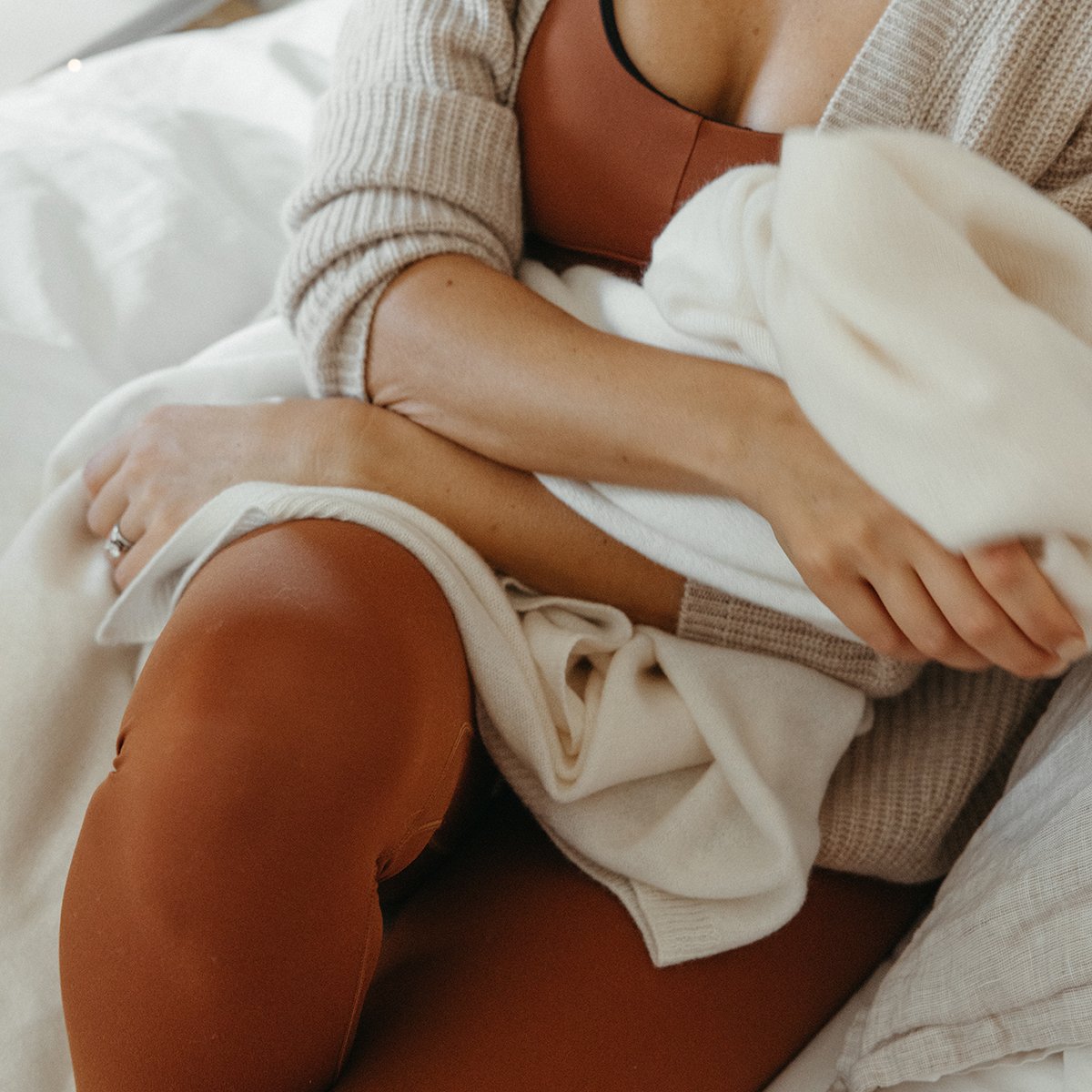
Subscribe
Sleep well.
Sign up to receive a FREE E-BOOK with 12 steps to your best sleep ever.
Thanks for Signing Up!
Oops!
Looks like you’re already signed up or your email address is invalid.
Oops!
Looks like you unsubscribed before click here to resubscribe.
The Truth About Getting the Best Sleep of Your Life
The expert in question? Dr. Jeffrey Durmer, a neurologist, systems neuroscientist, and board-certified sleep medicine physician with particular expertise in technology-enabled sleep health delivery systems. What’s more, Dr. Durmer is a sleep advisor for MUD\WTR, one of my favorite coffee alternatives. Knowing that he shares my (and many other’s) pursuit of sustainable, lasting energy, it was clear he’d be the expert to ask about all things quality, restful sleep.
Keep reading for Dr. Durmer’s insights about common habits that could be negatively impacting your sleep, ideas for improving your sleep health, and the truth about how many hours of shut-eye you really need.
Habits That Lead to Poor Sleep Quality
By now, many of us know that using technology (particularly our phones) before bed is one of the biggest offenders when it comes to getting good sleep. Here are a few other culprits that Dr. Durmer says can majorly affect the quality of our sleep:
Alcohol, nicotine, and caffeine use
Alcohol increases your heart rate, raises body temperature, and activates metabolism, all of which impair sleep. In addition, alcohol is a potent REM sleep inhibitor, which means you may end up having REM sleep rebound several hours after the alcohol in your bloodstream is metabolized by the liver. REM rebound is not restful sleep, and often is associated with vivid dreaming, nightmares, and other parasomnias that interrupt sleep.
Nicotine activates the frontal lobe and other areas that are wake promoting through acetylcholine receptors. This results in delayed sleep onset, less deep non-REM sleep (your recovery sleep), and more frequent arousals from sleep.
Caffeine is a potent adenosine antagonist, meaning, it blocks adenosine, a naturally occurring nucleoside that is known to accumulate throughout wake in relation to normal physiological processes associated with ATP use. The natural signal for sleep onset is activation of adenosine receptors in the hypothalamus as adenosine accumulates. Caffeine has been shown to block this natural process for up to 6-8 hours. For this reason, the use of caffeine, especially later in the day, can seriously impair your natural ability to fall asleep and stay asleep.
Not prioritizing sleep as a culture
Today, in many western cultures, sleep is no longer seen as imperative for health or wellbeing. This is clear when you compare the average sleep duration of American adults now (~6.2 hrs/night) and in the 1960s (~8 hrs/night). The major cultural differences between now and then include the “24/7-ization” of everything from food stores to big box stores. The expectation placed on US workers includes working shifts, multiple jobs, and giving up sleep to do it. One result is that sleep is no longer considered essential by many in our culture, and in fact working through sleep deprivation is hailed as a “badge of honor.” So, to prioritize sleep for yourself and your family, you need to swim upstream against the prevailing thought that sleep is for the weak, or for weekends and holidays.
The expectation placed on US workers includes working shifts, multiple jobs, and giving up sleep to do it.
Complexity and novelty in the bedroom
If you take a look at the average American bedroom, there are many features that detract from the main event that is supposed to take place—sleep. Televisions, computers, smart phones, overhead lights, noise and light from outside, pets, and children are just a few of the “features” that are well-known to negatively impact sleep quality.
One way to reduce distractions from sleep is to think of your bedroom as a “sleep sanctuary.” This means that everything in the room is there to support sleep, not detract from it. With this in mind, you can remove items that have nothing to do with sleep and you may find that by simplifying your room to the essentials. This might include room darkening shades, noise cancelling sounds, constant cooling airflow, a new mattress/sheets/pillows, and some clear boundaries for those who interrupt your sleep.
2 of 9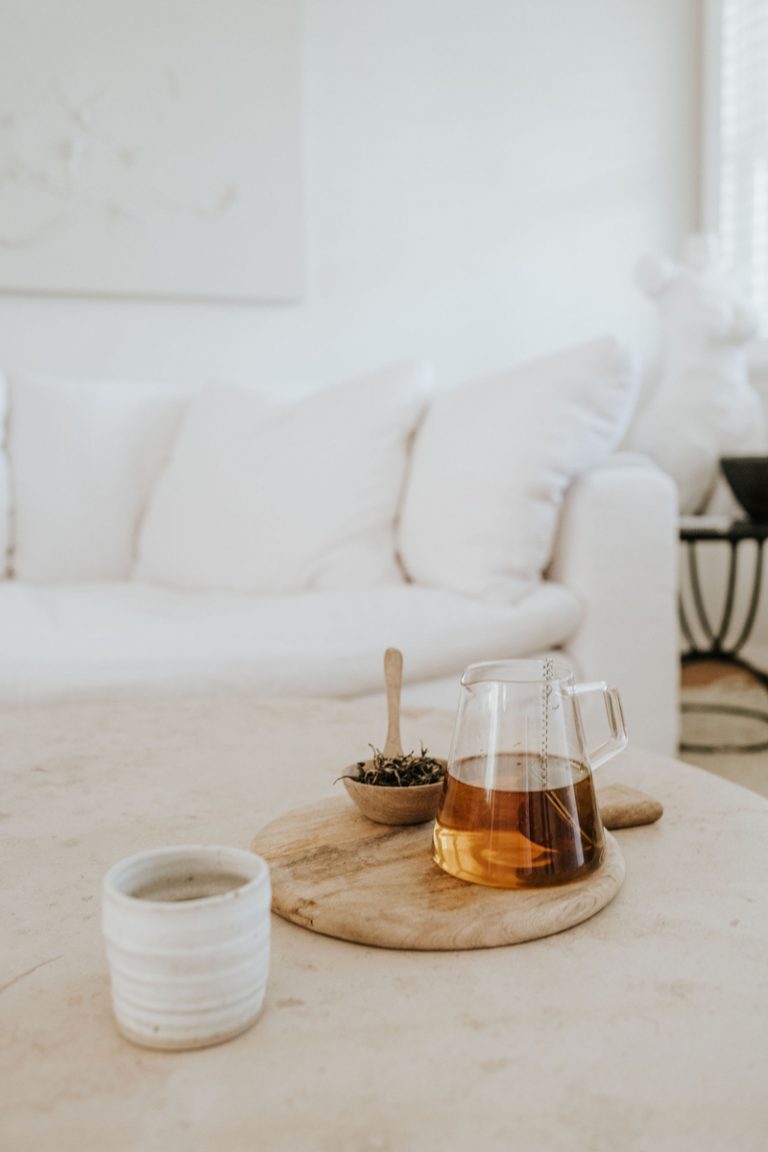
Treat yourself just like you would want to treat a child
When kids go to sleep (successfully), they most often follow a routine. This is called a wind-down routine. Taking a bath, brushing teeth, reading a book, saying good night, turning out the light, etc… By following a wind-down routine, children can reliably fall asleep and stay asleep most nights. I suggest that you do the exact same for yourself by setting aside “me time” to unplug so that you can calm your nervous system down.
Lower the lights, reduce the noise, and take a warm shower or bath, which will activate radial cooling when you exit the water. Then before you get into bed, do something internal like reading, meditating, writing, or just breathing with purpose. Some people find making a list of “to-do’s” for the next day helpful to unload the mind as well.
Have a little nighttime beverage that supports your calming routine. Once you find yourself yawning, set your alarm clock, get into bed, and turn out the lights. If you find you can’t sleep, or wake up and cannot fall back to sleep, repeat the internalizing activities you did to get sleepy. And remember: whatever you choose to do, do not do it IN your bed. Only use your bed for actual sleep, not “getting sleepy.”
3 of 9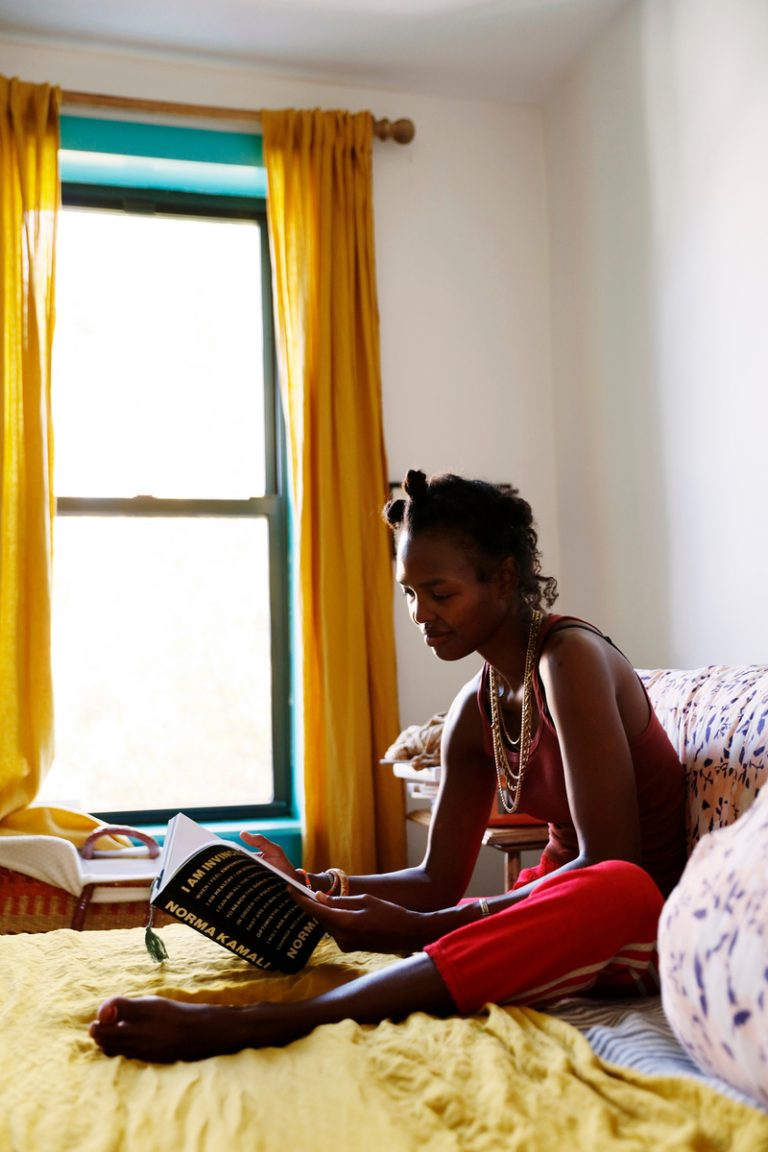
Get to know our circadian rhythms
We all have our own internal clock that drives our body and brain for wake and sleep. This “circadian rhythm” is unique to each of us and is inherited from our parents. A few of us are night owls preferring to fall asleep late at night and wake in the late AM or even early PM. Some others, which we call morning larks, naturally get sleepy in the early evening and wake before the crack of dawn in the early AM.
Going to bed late is often associated with inadequate sleep quality and reduced sleep duration, both of which are well known risk factors for poor mental and physical health.
While the vast majority of us are neither night owls nor morning larks, we are often confronted with variable work schedules and/or social activities that throw off our regular sleep and wake times. Studies in multiple populations demonstrate a consistent association between going to sleep late and an increased risk for obesity, cardiovascular disease, and depression. We also know that night owls are 2-3 times more likely to have issues like depression, neurodevelopmental disorders, and cardiovascular disease.
4 of 9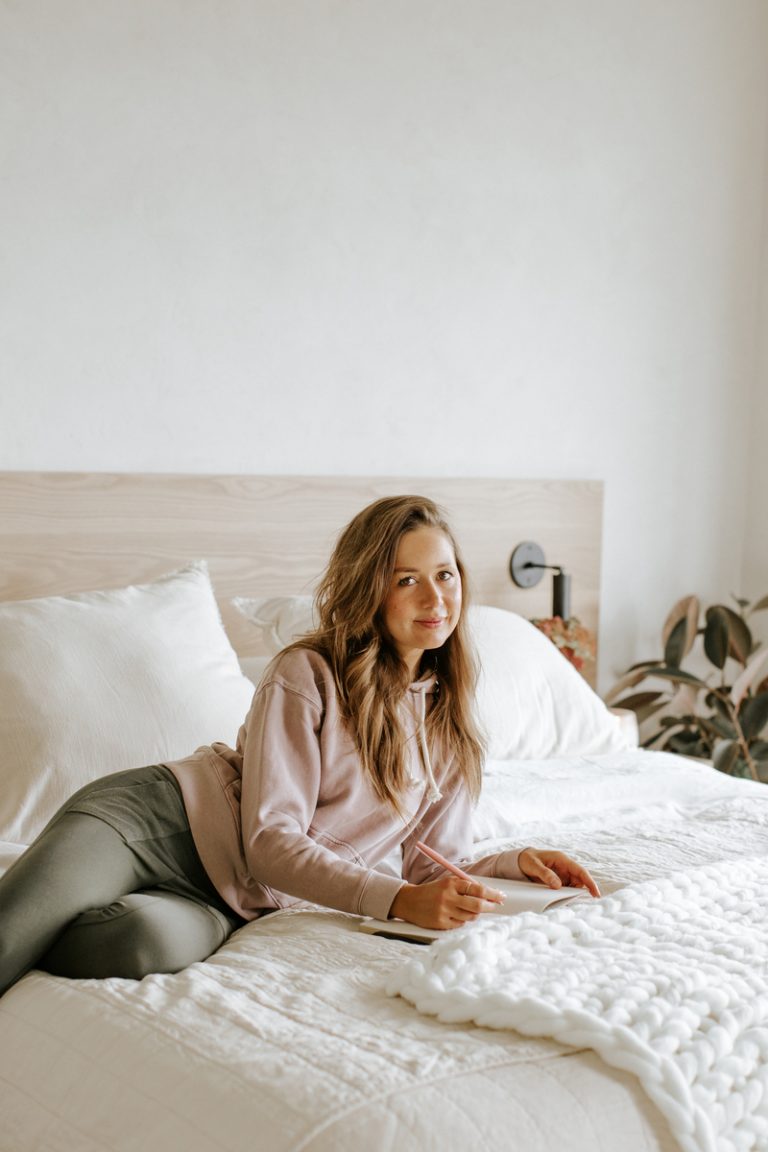
Aim for the ideal sleep timeframe
What is most important to understand is that your actual bedtime is not the only reason for higher health risks. Going to bed late is often associated with inadequate sleep quality and reduced sleep duration, both of which are well-known risk factors for poor mental and physical health. Of note, there was a recent large observational study of adults (night owls, morning larks and everyone else), which demonstrated that a bedtime between 9:45 PM and 10:30 PM predicted the best overall health for all people.
While this was just an observational study, it does provide us with “a target time” for sleep onset in adults. One thing all sleep and circadian neurobiologists agree upon is that the most important variable is not the time you go to bed or fall asleep; it’s the time you wake up that really matters. So, if you want to improve your sleep, and by extension your day, get up at the same time (give or take 30 minutes). By starting your circadian system at the same time each day, you set yourself up for a regular sleep time.
One thing all sleep and circadian neurobiologists agree upon is that the most important variable is not the time you go to bed or fall asleep; it’s the time you wake up that really matters.
5 of 9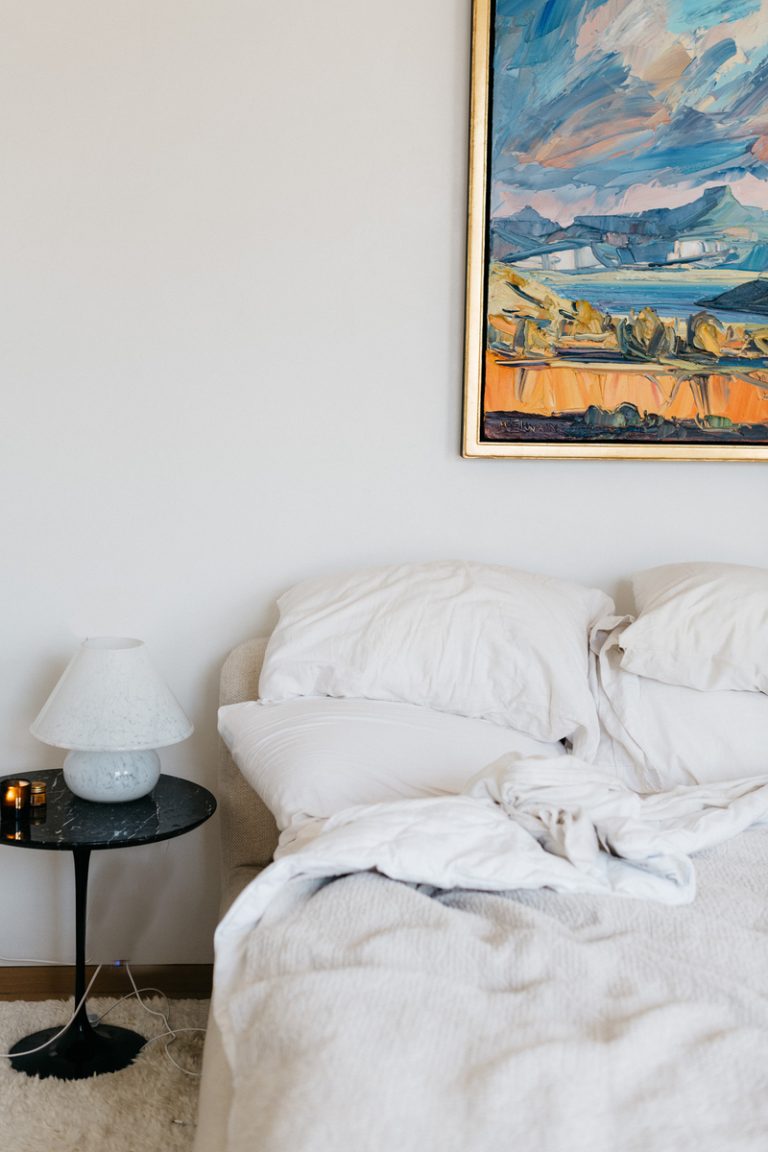
Hit your target sleep time each night
As alluded to in the response to the previous question, there is a large body of literature that demonstrates the clear relationship between average hours of sleep, and health and wellbeing. We know that over the lifespan our sleep duration requirements change dramatically.
Young developing infants require over 12 hours of sleep per day. Kindergarteners need a solid 10 hours of sleep in addition to an hour-long nap during the day. Young adolescents require about 9 hours of sleep, and young adults need at least 7-9 hours to function. When individuals in these age groups sleep less than the average, we also know that health is negatively impacted.
In adults that sleep less than 7 hours per night on average, we know that mental health, cardiovascular systems, immune systems, metabolic and neurological functions are impaired. Sleeping on average less than 7 hours per night as an adult is also associated with developing many chronic diseases in the same body and brain systems (i.e., depression, arrhythmias, autoimmune diseases, diabetes, ADHD, and dementia). So yes, there is a lot of truth to the NIH, CDC, and NSF recommendations that adults require between 7-9 hours of sleep per night.
6 of 9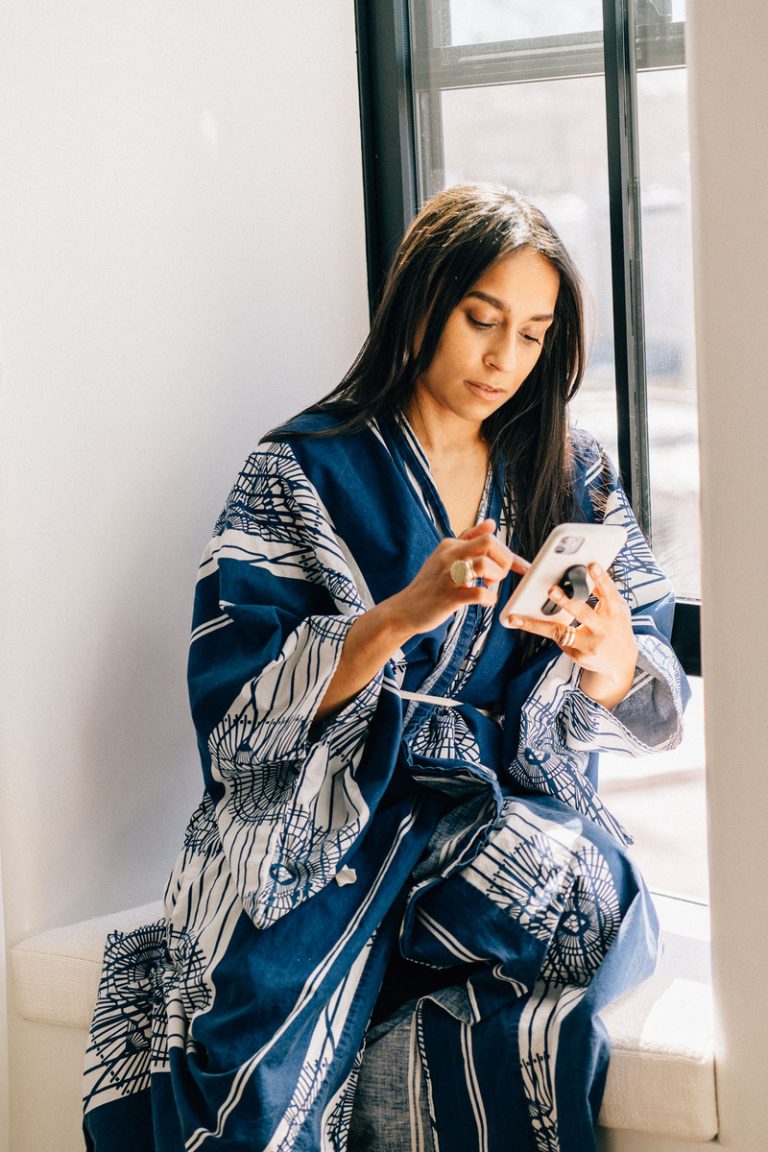
Use technology to support your goals
The answer to this question relies both on the type/intent of the technology and the individual using the technology. In psychology, we use the term “set and setting,” and in genetics we refer to “nature vs nurture” to describe the interaction between what a person brings to a situation (set or nature of an individual), and what the individual experiences (setting or nurture) to arrive at the outcome of an interaction.
Others who use sleep-tracking to “perfect” their sleep can end up with a sleep disorder called “orthosomnia”—insomnia caused by an obsessive pursuit of better sleep.
These theoretical constructs apply when it comes to the use of technology in relation to sleep. Studies suggest that some individuals clearly benefit from specific types of technological interventions before sleep such as guided relaxation, breathing, or meditation techniques from an app. Others who use sleep-tracking to “perfect” their sleep can end up with a sleep disorder called “orthosomnia”—insomnia caused by an obsessive pursuit of better sleep.
So, there is not really a singular answer to this question. A guiding principle I can relate is to use technology in a purposeful way that takes into account your specific needs (i.e., relaxation) and that supports sleep promotion (i.e., accentuates what is natural).
For example, just because you heard that wearing blue-blocking glasses in the evening helps reduce the light-related activation of wake centers in the brain, you should not think that it will help you sleep if you are up at night working on your computer or scrolling on your smartphone. The purposeful use of blue-blocking technology, or the use of natural light in the evening (i.e., candles, fireplaces, etc..), is to help you prepare your brain and body for sleep.
Technology used to accentuate your wind-down routine can be very helpful. Just realize that tech is only good when you control the boundaries of use. For most of us, the use of technology around sleep is not helpful. Smartphones in particular offer us distraction, interaction, and information that activates/satisfies our novelty-seeking wake brain rather than providing a soothing calm to shut off the day and allow sleep to arise.
Every product is curated with care by our editors. If you buy something through our links, we may earn a small commission at no cost to you.

 Koichiko
Koichiko 









